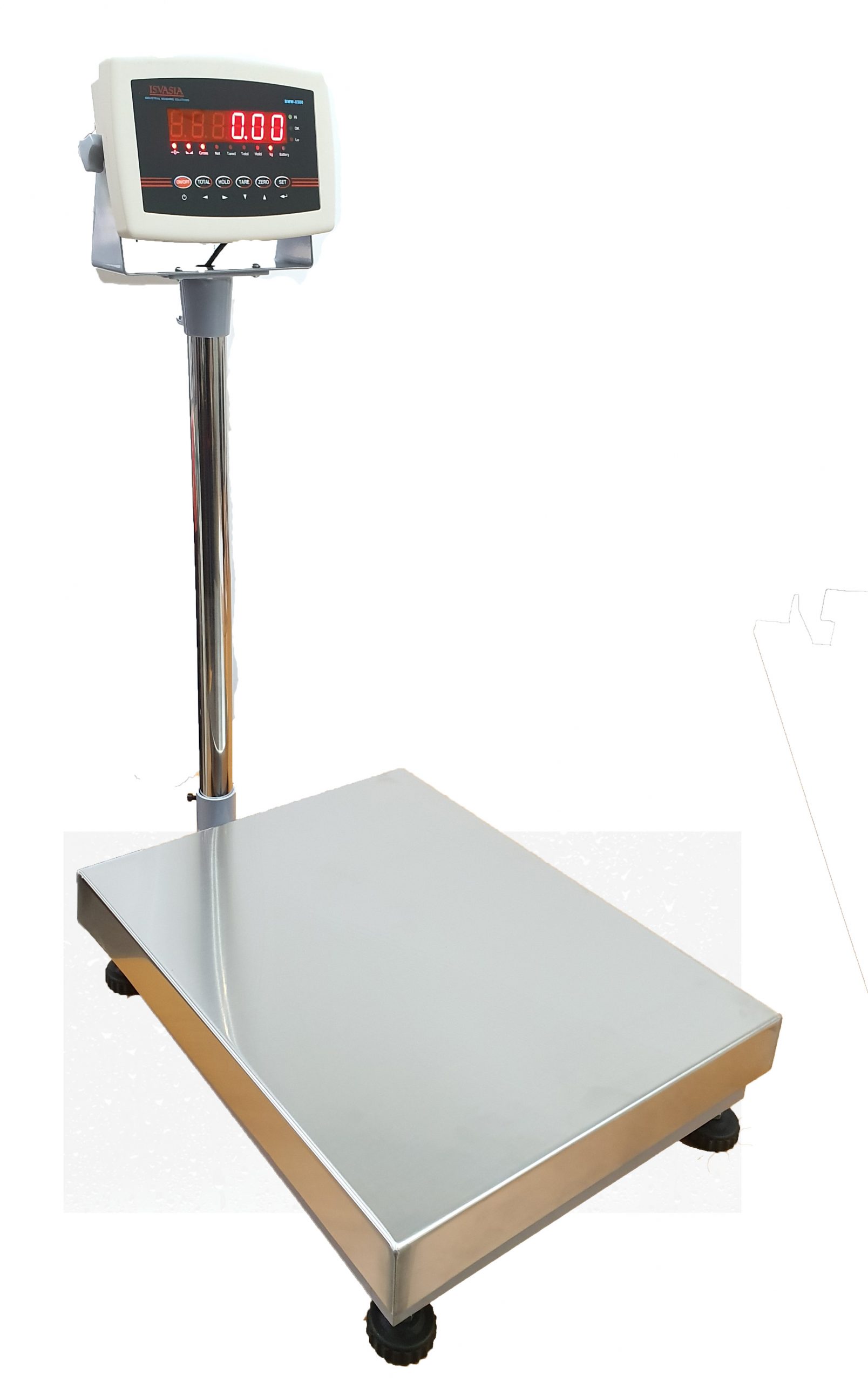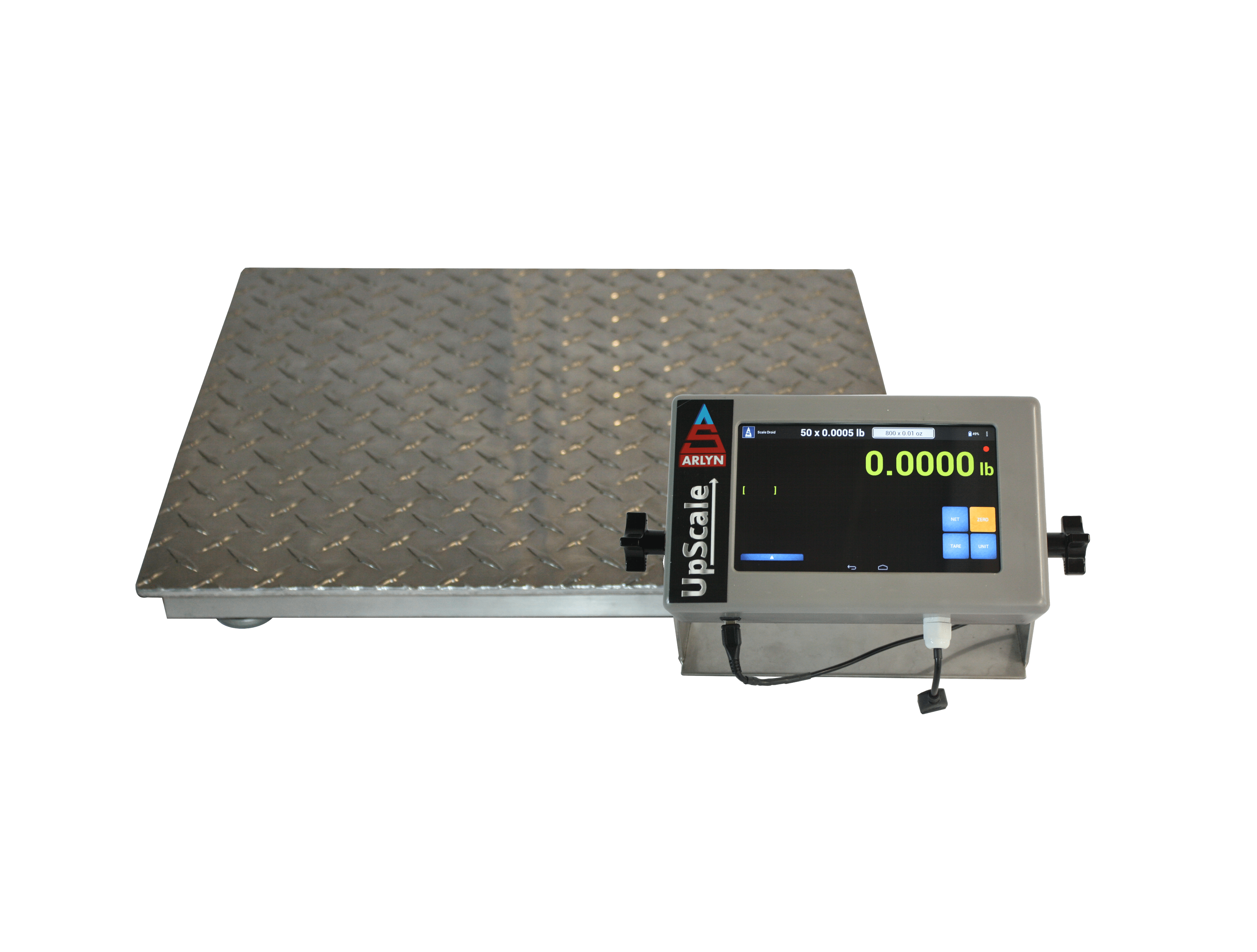Exactly How Industrial Scales Improve Accuracy in Manufacturing and Logistics
Industrial ranges are indispensable to the accuracy required in production and logistics, as they directly affect the precision of weight measurements important for reliable manufacturing and inventory techniques. Industrial Scales. By guaranteeing that materials are considered accurately, companies can mitigate mistakes that might bring about considerable financial repercussions. In addition, the arrival of innovative technologies in considering systems is transforming typical processes. Nonetheless, understanding the full level of these innovations and their implications for future procedures invites a better exam of exactly how developing techniques can redefine accuracy standards in the market.
Significance of Precision in Operations
In the world of production and logistics, precision is the foundation of operational effectiveness. Accurate dimensions are essential for maintaining quality assurance, maximizing resource allotment, and making sure compliance with industry standards. When procedures depend on precise data, businesses can decrease waste, boost manufacturing timelines, and improve overall productivity.
The relevance of precision prolongs beyond easy dimension; it likewise influences decision-making procedures. Specific weight readings can figure out proper stock levels, simplify supply chain logistics, and assist in accurate invoicing. Inaccuracies in dimensions can lead to expensive errors, such as overflow or taking too lightly material requirements, which can jeopardize project timelines and success.
Moreover, precision in procedures cultivates a culture of responsibility and quality assurance. By applying rigorous measurement requirements, organizations can identify ineffectiveness and establish improvements, eventually causing enhanced client fulfillment. In a period where competition is intense, the capability to supply items and services with accuracy can be a distinct variable that establishes a company apart. Thus, purchasing precision measurement tools, such as industrial ranges, is not simply a technological factor to consider but a calculated critical for success in the production and logistics sectors.
Types of Industrial Scales
Various kinds of commercial scales play an important function in achieving the accuracy needed for reliable production and logistics procedures. Each kind is created to fulfill details needs, ensuring precise dimension of materials, parts, and items.
One common kind is the platform range, which supplies a flat surface for considering huge items or bulk products. These scales are frequently made use of in storehouses and shipping facilities. Another kind is the bench range, normally smaller and utilized for considering specific bundles or smaller sized batches of items. These ranges are vital in quality assurance processes. Industrial Scales.
For applications where precision is important, logical balances are employed. These high-accuracy scales are utilized in research laboratories and study setups to measure small quantities with utmost accuracy. Flooring ranges, developed for durable evaluating, are excellent for weighing large pallets or containers, commonly incorporated with forklifts for performance.
Furthermore, lots cells are used in various applications for real-time weight measurement and data collection. Each of these scales adds uniquely to the functional efficiency, making sure that organizations can keep precision throughout their manufacturing and logistics processes. Recognizing the sorts of commercial ranges is necessary for maximizing performance and accomplishing functional quality.

Impact on Inventory Management
Accurate evaluating is critical for reliable inventory management, as it directly affects supply accuracy and operational efficiency. In manufacturing and logistics, precise measurement of materials and items guarantees that inventory records mirror real supply degrees, lowering disparities that can bring about overstocking or stockouts. Industrial ranges give the essential accuracy to evaluate products properly, enabling services to keep a dependable inventory system.
Moreover, precise considering adds to much better forecasting and planning. With specific data on inventory degrees, companies can make educated decisions concerning procurement and production timetables. This decreases the threat of excess stock, which this can lock up capital and boost storage prices, as well as protect against shortages that might disrupt procedures.
Furthermore, the assimilation of industrial scales with inventory monitoring systems assists in real-time monitoring of stock activities. This improves the procedure of upgrading inventory records, boosting transparency and responsibility throughout the supply chain. Inevitably, accurate weighing not just supports efficient supply administration but also drives total operational performance, allowing organizations to react promptly to market needs and keep an one-upmanship in their corresponding industries.
Enhancing Quality Assurance
Reliable stock administration not just makes certain optimum stock levels but additionally prepares for robust quality assurance procedures. Industrial ranges play a pivotal role in improving quality assurance by offering accurate weight dimensions that are essential for preserving product stability. Regular weight confirmation makes it possible for makers to comply with specifications, making sure that each thing fulfills the required quality requirements.
In high-stakes atmospheres, such as food manufacturing or drugs, even small weight inconsistencies can bring about substantial conformity concerns. By incorporating industrial ranges into the manufacturing line, firms can keep track of item weights in genuine time, allowing for instant corrective activities if irregularities are spotted. This positive technique minimizes waste and improves overall product reliability.
In addition, accurate evaluating helps with far better solution of raw materials, which is important in markets such as chemicals and cosmetics. By making sure that ingredient proportions stay consistent, makers can attain premium item quality, look at this site improving consumer complete satisfaction and minimizing returns.
Future Fads in Considering Technology
The future of weighing modern technology is poised for significant innovations driven by automation, connection, and information analytics. As markets progress, the combination of advanced sensing units and IoT (Web of Things) capabilities will make it possible for real-time surveillance and reporting of weight data. This connection will certainly not just boost operational effectiveness but likewise promote anticipating maintenance, reducing downtime and enhancing efficiency.
Furthermore, the consolidation of man-made intelligence and device knowing formulas right into evaluating systems will certainly enhance data evaluation capabilities. These innovations can identify anomalies and patterns, enabling even more enlightened decision-making and enhanced supply chain management. The surge of cloud-based services will enable seamless data sharing throughout systems, making certain that stakeholders have accessibility to up-to-date information at all times.
Sustainability will certainly additionally play a crucial role in future weighing modern technology. As organizations aim to minimize their carbon impact, evaluating systems that incorporate energy-efficient designs and materials will certainly end up being progressively essential. In addition, developments in electronic weighing ranges will sustain far better resource administration by giving exact measurements that decrease waste.
Final Thought
Finally, industrial ranges considerably improve accuracy in production and logistics by offering specific weight measurements crucial my review here for efficient operations. Their role in stock administration, quality assurance, and assimilation with advanced innovations emphasizes their value in decreasing disparities and maximizing source appropriation. As industries remain to evolve, the fostering of innovative weighing options will additionally sustain operational effectiveness and decrease waste, ultimately adding to enhanced performance and competitiveness out there.
One typical kind is the system scale, which provides a level surface for evaluating bulk products or large items. An additional kind is the bench scale, commonly smaller sized and utilized for evaluating specific plans or smaller sized batches of products. Floor scales, designed for sturdy considering, are optimal for evaluating big pallets or containers, usually integrated with forklifts for efficiency.
Industrial ranges give the necessary accuracy to consider items accurately, allowing organizations to preserve a dependable supply system.
